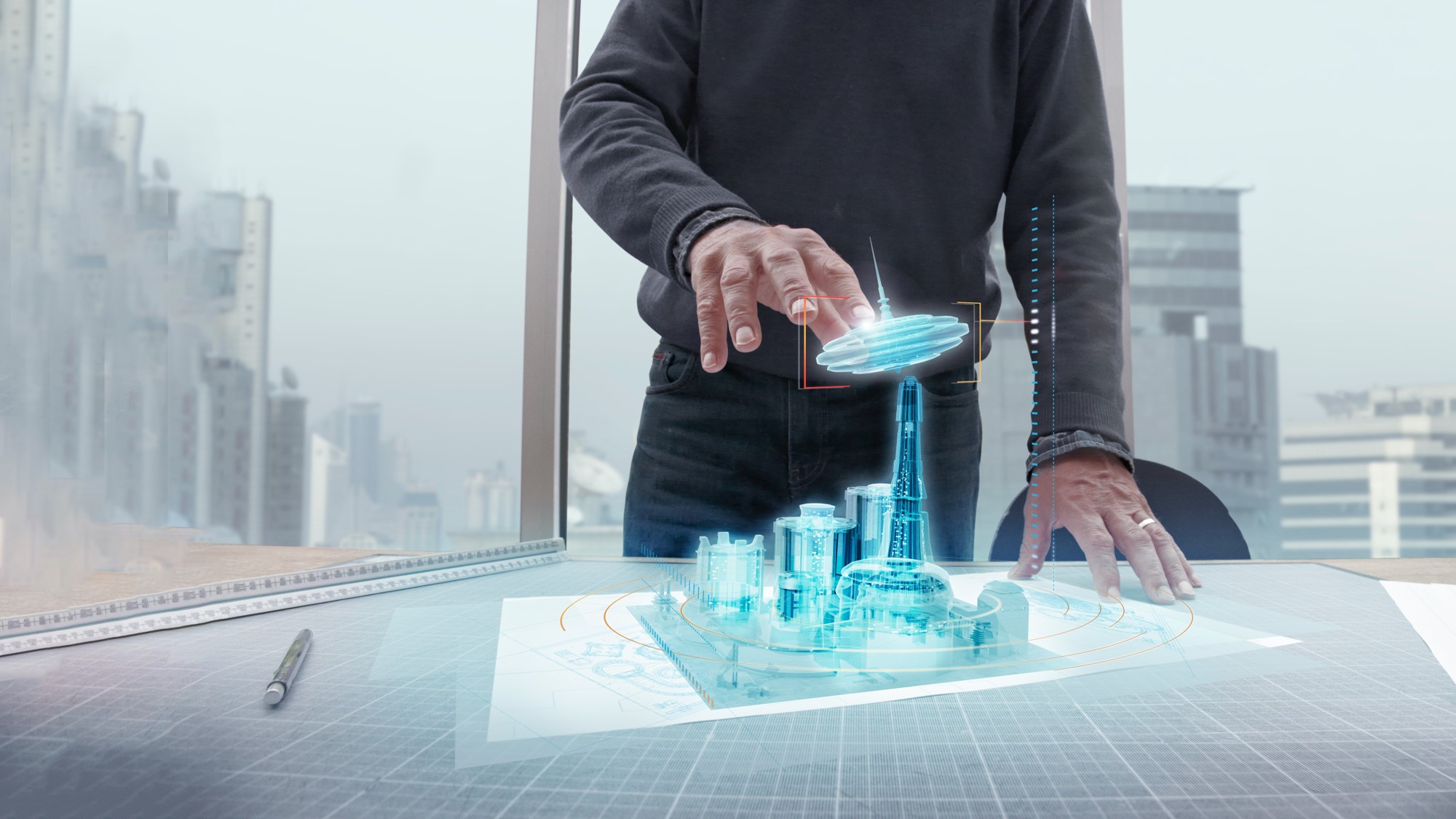Digital Twinning In Architecture, Engineering, And Construction

The concept of a “digital twin” has been in use for decades, particularly in the aerospace industry. Defined as a dynamic digital replica of a product, process, system, or facility, a digital twin can be used to imitate real-world situations and help optimize systems and processes.
Digital twins can be used across industries to monitor performance and detect issues, simulate design without building a physical object, and provide full visibility into a building or machine without the need for physical access.
It’s easy to see the potential of digital twins in architecture, engineering, and construction (AEC), but how is this technology being used in the industry?
First, let’s consider three basic categories of digital twins:
- Discrete Digital Twin – A discrete digital twin is the least complex of the three categories. It is often a single or atomic entity that does not need to be further broken down into components or parts.
- Composite Digital Twin – A composite digital twin is a combination of discrete digital twins that represent an entity comprised of multiple individual components.
- Digital Twin of an Organization (DTO) – A DTO is a dynamic digital model of an organization.
Within each category, there are three basic types of digital twins:
- Status Twins, which are typically used for basic condition monitoring applications such as dashboards and simple alerting systems. Status twins include operating parameters and are generally created with visualization tools.
- Operational twins provide more extensive information as compared to status twins, allowing for use in decision making. These types of twins are linked to a set of actions or workflows so that users can interact with the twin and change operating parameters.
- Simulation twins leverage different types of simulation or artificial intelligence capabilities to predict, forecast or provide insight into future operational states. It can be used for predictive maintenance or to improve the recovery yield of a processing plant.
Regardless of the category or type in use, digital twins provide a myriad of benefits, including improved data sharing, collaboration, safety, and trustworthiness; increased productivity; the capability to manage operations in real-time, conduct simulations and experiments; and the ability optimize asset performance and sustainability.
Despite these extensive benefits, digital twin adoption in AEC markets has been remarkably slow. Only 5% of enterprises and less than 1% of assets have started implementing digital twins. The wide adoption of this technology in the AEC market is expected to be challenging and slow – but why?
There are four primary challenges to adopting digital twins in the AEC industry – technology, financial, cultural, and structural. First, digital twin technology is nascent to the AEC industry. It requires time, skilled resources proper governance, and a clear implementation strategy. Because it is so new to the industry, many AEC companies do not yet have this expertise in-house and need to work with a technology service provider to make it happen. This, of course, leads directly to the second challenge – money.
Digital twin technology requires an upfront investment, and that investment may take several years to recoup. Companies considering using digital twins on projects need to carefully consider the return on investment and consider where and how it will add value to the project. Not every project will ultimately need a digital twin, but there are many projects that would benefit from a more up-front investment in this technology.
AEC companies also face a cultural challenge in adopting digital twins. Our industry is known to be slow in adopting new technologies, and digital twins are no different.
Finally, the structure of the industry is a challenge on its own. Procurement practices, the fragmented nature of the industry, projects awarded in a piece-meal approach, and more all contribute to the challenges noted above. When “lowest cost wins” on a bid – why add expensive technology to your bid that might put it at risk?
Digital twin technology has a lot to offer owners, and an appropriate risk-reward business model between owners and the AEC supply chain will help in advance. Either way, now that the technology exists, it will grow and adapt and ultimately change the AEC industry over time.